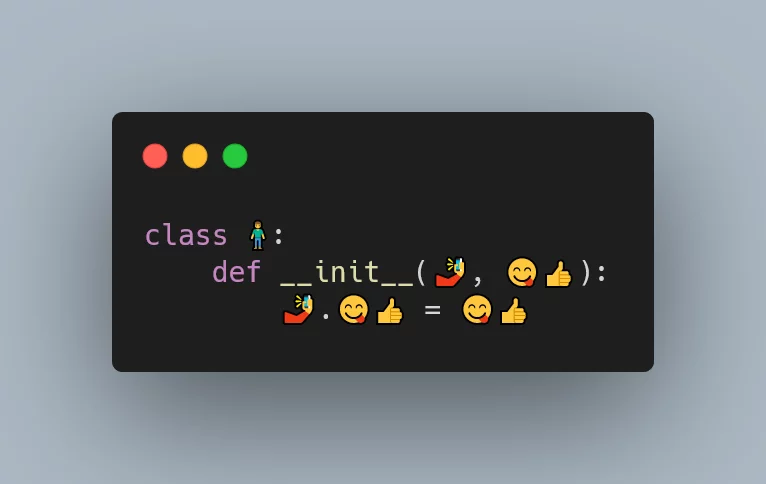
Can you use emojis in Python?
No! At the time of writing, emojis are not valid Python identifiers. This means that this code fails:
>>> 🍔 = "hamburguer" # SyntaxErrorHowever, if you install the package
pythonji
,
you will be able to run code like that!
Installing pythonji is as easy as python -m pip install pythonji!
With pythonji installed, we can run programs that make use of emojis!
Here's a little program I wrote:
import enum
class 🍽(enum.Enum):
🍔 = "hamburguer"
🍕 = "pizza"
🍅 = "tomato"
🥕 = "carrot"
class 🧍:
def __init__(🤳, 😋👍):
🤳.😋👍 = 😋👍
def 🍽(🤳, 😋):
if 😋 in 🤳.😋👍:
return "Yummi!"
else:
return "Ok, I'll eat that."
👨 = 🧍([🍽.🍕, 🍽.🥕])
print(👨.🍽(🍽.🍕))
print(👨.🍽(🍽.🍅))Save it to the file foo.🐍 (yes, the extension really is 🐍!).
Now, run it with pythonji foo.🐍 and this is the output:
> pythonji foo.🐍
Yummi!
Ok, I'll eat that.Amazing, right? 😆
That's it for now! Stay tuned and I'll see you around!
Become the smartest Python 🐍 developer in the room 🚀
Every Monday, you'll get a Python deep dive that unpacks a topic with analogies, diagrams, and code examples so you can write clearer, faster, and more idiomatic code.
